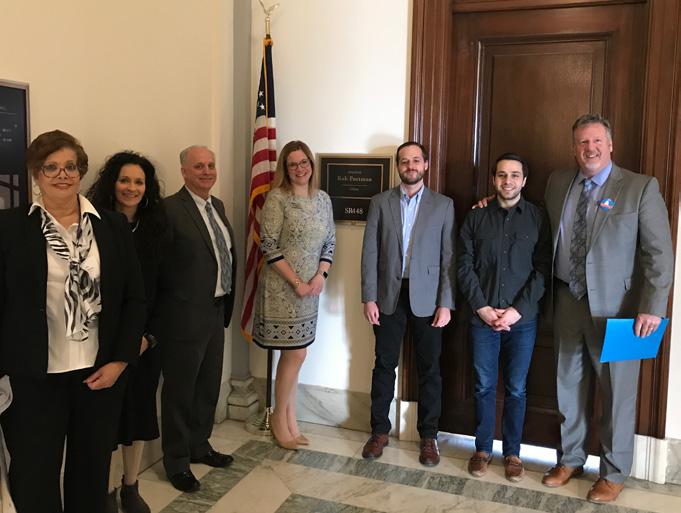feature story
WHY DID YOU DO THAT? BY PAUL G. YOUNG, PH.D.
OAESA PROFESSIONAL CONFERENCE PRESENTER
W
hen I was a young boy and did something my parents would question, they’d often ask, “Why did you do that?” Sometimes, I didn’t know. Other times, I did. I wasn’t always a good kid. I tested limits. Along the way I realized there was much to learn as I figured out the mysteries of life. It never occurred to me then how much value judgement was embedded in the “Why did you do that?” question. Everything I did, or did not do, reflected some assessment of my parents’ (and others’) differentiated standards for my behavior and expected accomplishments. I learned that whatever I did, and why I did it, could be done better or worse. The voice inside my head taught me that to do things better, to be different than other kids, to attain quality according to my loved ones’ standards, required making choices and putting forth effort that would gradually make me better. SO, WHY DID I BECOME A TEACHER? I wanted to be just like the music teachers I’d loved during school. I sought for myself the respect, wisdom, and the prestige I’d witnessed them attain. I was probably too young to completely grasp everything it meant to become a professional, but I did know that I enjoyed emulating them and sharing my passion for music with others. Over the years, I’ve never lost the desire to teach, but I gradually realized it wasn’t enough. SO, WHY DID I BECOME A PRINCIPAL? I wanted to be better. A decade ago, Simon Sinek published Start with Why: How Great Leaders
18
principal navigator
Inspire Everyone to Take Action. A subsequent TED Talk has become the third most-watched TED video of all time. His work explains how leaders with the greatest influence think, act, and communicate differently than others. The release of the book started a movement that has helped people become more inspired at work by focusing on choices, purpose, and effort. He described the search for the “why” as what drives us to do what we do—better. I’m sure you’ve been asked the question “Why did you become a principal?” I was, and I often struggled to give a good answer. I know many aspiring and practicing principals similarly grapple with the same question. Even as a retiree, Sinek’s work has helped me focus, but still, common responses that I hear today seem to reflect ideas, perhaps somewhat cliché, such as: • I want to do good things for people. • I have a vision that I want to bring to life. • I want to turn kids on to learning and reading. I’m not convinced that these types of responses are as sufficient, descriptive, or remarkable as they could be. Explaining why you chose to become a principal is hard to do. To me, an effective response reveals common sense and modesty wrapped with a strong desire to be more than mediocre. Principals must inspire children and adults to become better today than they were yesterday. Principals must commit to continuous self-growth and making schools better tomorrow than they are today. Of all the common responses heard about reasons to become a principal, we seem to focus very little about how the job allows us to make magic.
















